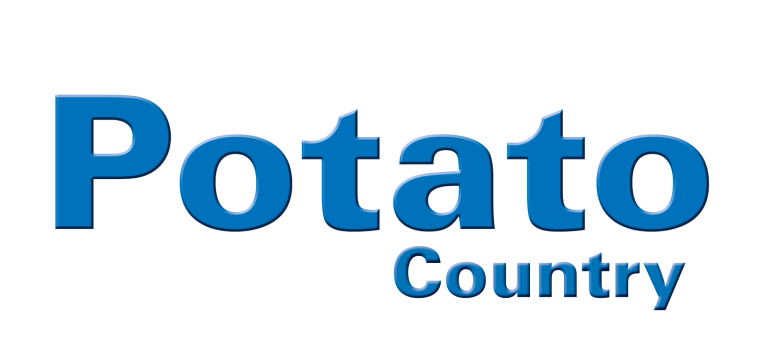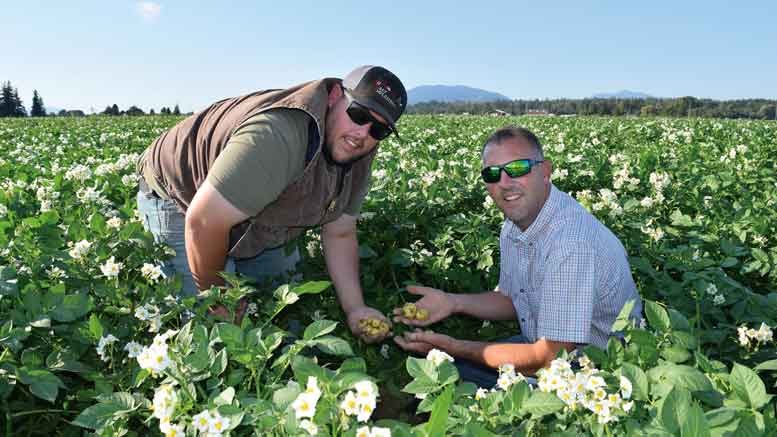Story and photos by Denise Keller, Editor
Skagit Valley farmers like Tony Wisdom know that growing specialty colored potatoes in a coastal climate has its pros and cons. While the plentiful precipitation in western Washington often creates challenges in getting potatoes planted and harvested in a timely manner, the region’s moderate temperatures compensate by helping deliver an excellent quality crop.
“Our quality is better. It’s not that we’re better farmers. For sure, it’s not that,” Wisdom says. “It’s just that we have an area with an environment, climate and soil that allows us to produce a really, really good quality specialty colored potato.”
Wisdom is the founder and CEO of Skagit Valley Farm in Burlington, Washington, where he grows potatoes for the fresh market. Thin-skinned specialty red, white and yellow potatoes account for 60 percent of the potato acreage, with the balance dedicated to the farm’s bite-size potato program started five years ago.
-AMAZONPOLLY-ONLYWORDS-START-
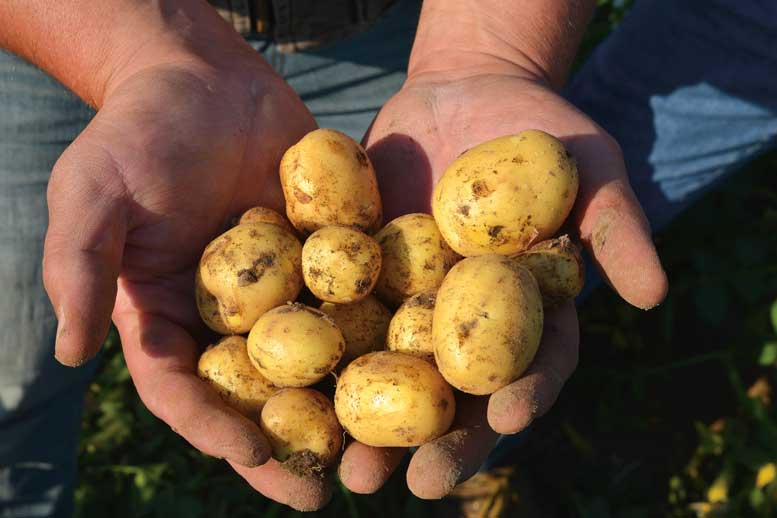
-AMAZONPOLLY-ONLYWORDS-END-
“Here in northwest Washington, and in particular, the Skagit Valley, our soils are some of the best in the world. We can grow a huge variety of crops here. We have high organic matter and we’re coastal, so we have moderate temperatures and climate. So, colored potatoes grow especially well in this area,” Wisdom says. “I think you’d find that nationally, we’re recognized as probably the highest quality red and yellow potatoes grown in the country.”
The Skagit Valley’s soil and climate are well suited for shorter-season potato varieties, Wisdom says. With the growing season beginning in mid- to late April, harvest typically starts in early September with hopes of wrapping up by the end of October. In reality, rain usually extends harvest into early November. This year, a particularly rainy spring also delayed planting.
“We’re in an area where we’re pumping water off the fields in the spring and then putting water back on the fields in the early summer,” Wisdom says. “We go from too dry to too wet in two days in Skagit County. Literally, that’s what happens, and it happens every year.”
“The other side of the coin is being coastal, we’re blessed oftentimes with some nice afternoon breezes when the tides change. So even though it might be warm and a little wet, we get a nice onshore breeze, so that helps keep things dried out. But it can also be bad because if there is any blight out there, it moves the spores around like crazy,” the grower adds, noting that the occurrence of misty conditions during the summer makes blight of higher concern in the region, requiring potato growers to use fungicides and to be diligent about scouting.
-AMAZONPOLLY-ONLYWORDS-START-
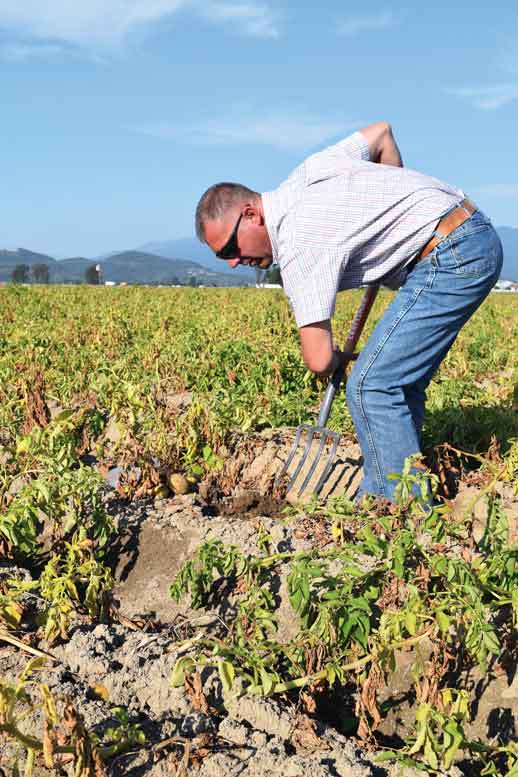
-AMAZONPOLLY-ONLYWORDS-END-
Beginnings, Progress
Wisdom is a lifelong farmer, born and raised on a family farm in Basin City, Washington. After earning a degree in business management, he worked for his family’s vegetable operation before relocating to western Washington in the early 2000s. There, he managed another farm in Skagit County before starting his own.
He founded Skagit Valley Farm in 2013 with the idea of growing niche crops and trying to do some things other growers in the area weren’t doing. With a climate ideally suited for brassicas, he started with baby lettuce, baby spinach, organic broccoli florets for processing, and organic red and yellow potatoes. The rotation morphed as Wisdom discovered and pursued new market opportunities to grow into one of the largest farming operations in Skagit County, he says.
Currently, the vertically integrated company is one of the largest producers of Brussels sprouts on the West Coast, with 95 percent of the crop grown for the fresh market. Other crops include winter wheat, barley, broccoli and cauliflower, the latter two of which will be phased out next year due to labor issues and replaced by grass seed.
-AMAZONPOLLY-ONLYWORDS-START-
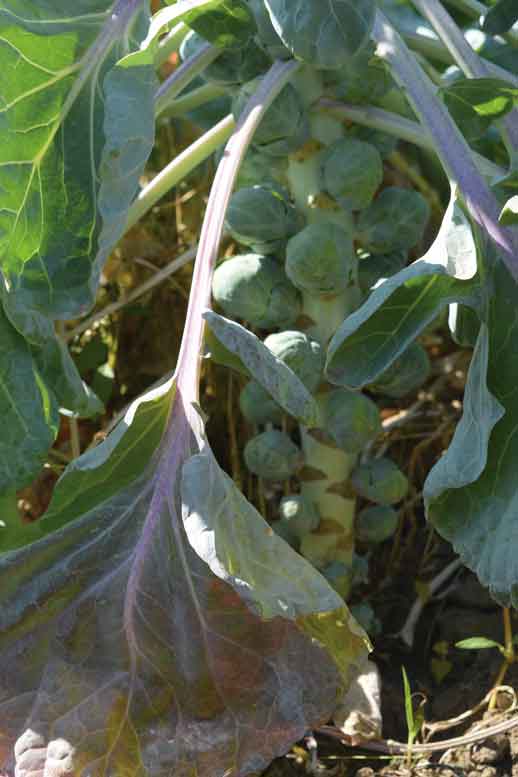
-AMAZONPOLLY-ONLYWORDS-END-
Skagit Valley Farm employs 150 people year-round and 220 during peak season. Due to the elimination of the agricultural overtime exemption in Washington, the farm is looking for ways to streamline operations, including automating as much of its potato production as possible. The company recently implemented electronic sizing and sorting in the packing shed as one way to gain efficiency.
The farm will also begin using a new process of seed cutting next spring. The European technology uses a heated blade to suberize the cut side of the potato. This will minimize the chemicals used on seed pieces and allow seed to be planted sooner after cutting without the increased risk of seed piece rot.
Finally, to reduce loss in storage, the farm stores its potatoes in wooden bins rather than in a bulk pile. This helps increase airflow and decrease pressure bruise and has made a big difference in increasing pack-out, Wisdom says.
-AMAZONPOLLY-ONLYWORDS-START-
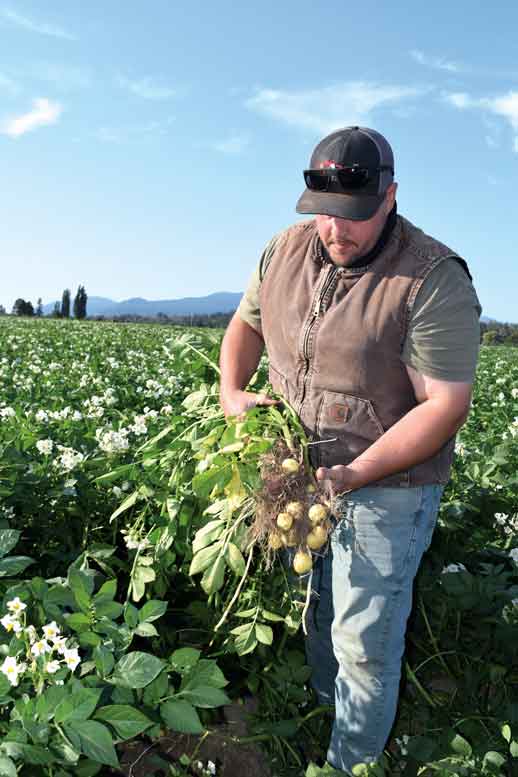
-AMAZONPOLLY-ONLYWORDS-END-
Challenges, Rewards
Looking ahead, Wisdom can see that crop quality will continue to be vital to the farm’s success, especially in light of ongoing challenges. The availability of reliable and skilled labor is continuing to decrease while labor costs increase. This trend, combined with the rising cost of production inputs, suggests that profitability is going to be more difficult to achieve in the future.
“Farming is really hard and it’s very difficult, especially over here because of the weather and the things we can’t control. What we can control is our attitude and our effort, and our people are just fantastic on both of those fronts, so that makes producing barley, Brussels sprouts or potatoes cool. It makes the whole thing fun,” Wisdom says.
Wisdom says he and his team feel a sense of satisfaction from seeing Skagit Valley Farm’s brand of potatoes in the produce section of a grocery store and are reminded why they put such an emphasis on quality and customer service. For Wisdom, meeting the high standards demanded in today’s retail environment requires a year-round commitment, focusing on details from seed and variety selection through tuber quality at packing.
“That’s the love affair we have with growing potatoes. It’s super, super hard. But when you produce a good crop, it’s super, super rewarding,” he says.
-AMAZONPOLLY-ONLYWORDS-START-
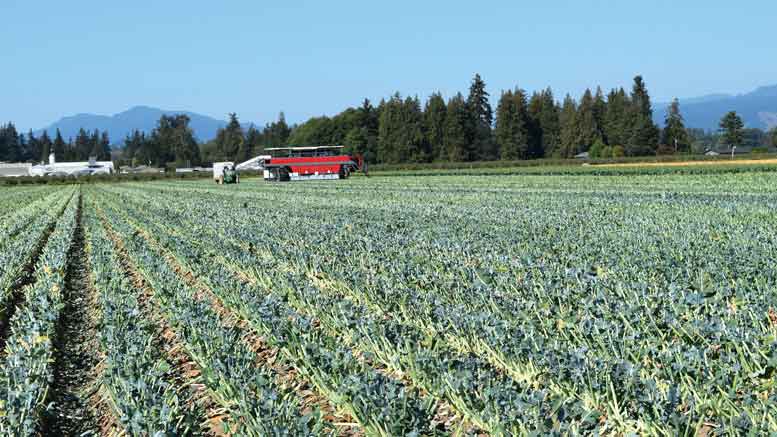
-AMAZONPOLLY-ONLYWORDS-END-
